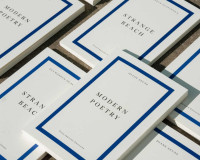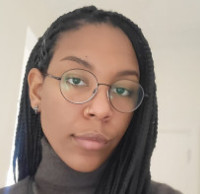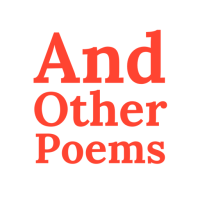
Calling all aspiring authors! Here's your chance to win a one-to-one session with a literary agent - plus £1,500
goodhousekeeping.com – Thursday June 26, 2025

Do you have a brilliant idea for a book but need help getting it down on paper? GH has teamed up with literary agent Nelle Andrew from Rachel Mills Literary agency to give readers the chance to win valuable feedback on their writing, plus support in finishing their novel.
We’re after someone whose work is unpublished and is without a literary agent. Entries can be in any genre of adult fiction (not children’s or YA, short stories, poetry, drama or plays, or any non-fiction). The winning entry will be the one that grabs our attention, shows the most promise and leaves us wanting to read more.
First prize is £1,500, plus a one-onone, hour-long mentoring session with Nelle, and an extract will be published by GH online. Six readers will get written feedback from a literary agent. So get writing!

New prize for translated poetry aims to tap into boom for international-language writing
theguardian.com – Tuesday June 24, 2025

A new poetry prize for collections translated into English is opening for entries next month.
Publishers Fitzcarraldo Editions, Giramondo Publishing and New Directions have launched the biennial Poetry in Translation prize, which will award an advance of $5,000 (£3,700) to be shared equally between poet and translator.
The winning collection will be published in the UK and Ireland by Fitzcarraldo Editions, in Australia and New Zealand by Giramondo and in North America by New Directions.
“We wanted to open our doors to new poetry in translation to give space and gain exposure to poetries we may not be aware of,” said Fitzcarraldo poetry editor Rachael Allen. “There is no other prize like this that we know.”

The Plight Of The White Male Novelist
defector.com – Tuesday June 24, 2025

In July of 2022, Joyce Carol Oates tweeted that her literary agent friend told her editors are no longer interested in reading first novels by young white male writers, “no matter how good.” She was saying this in support of an article by former New York Times columnist Pamela Paul, who argued that the publishing industry is being destroyed by “illiberal scolds” keen to stifle free speech. Among Paul’s examples are the industry’s recourse to sensitivity readers, who ostensibly scold authors, and the backlash against 2020 bestseller American Dirt on the grounds that its white author Jeanine Cummins was not the right person to tell the story of poor Mexican migrants. Paul is implying, in other words, that calls for publishing to address its whiteness problem amount to a form of woke censorship. In sharing Paul’s piece and adding her own anecdote about young white men being overlooked, Oates was connecting their fate to Paul’s complaint: White men are the victims of the industry’s takeover by the DEI mafia.
The idea that white male writers today face diminishing opportunities has since occasioned considerable debate and several attempts to lay out in greater detail the forces behind their recent marginalization. Jacob Savage’s explanation is that they are “vanishing” because, having been castigated as toxic masculinists and told there are no “Good White Men,” they no longer feel that they are allowed to have a voice. Tim Lott argues that an industry now dominated by women editors and agents, who are naturally biased toward manuscripts that center their own experiences, is guilty of the same inequality that women once complained about, except now it is men who are excluded.

New Literary Agent Listing: Kaylyn Aldridge
firstwriter.com – Tuesday June 24, 2025

Loves to research underground internet subcultures. She believes that diverse perspectives are key to understanding cultures, communities, and nuances of the human experience. Accepts submissions in December, June, and July.

TikTok parent ByteDance is shutting down its short-lived book publisher
techcrunch.com – Monday June 23, 2025

TikTok parent ByteDance’s book publisher 8th Note Press is closing up shop, according to a report from The Bookseller.
Through its #BookTok community, TikTok has become an irreplaceable engine for publishers to drive book sales; even self-published authors have found unprecedented success by capturing a viral moment on TikTok. ByteDance took the next logical step in 2023, figuring that if the app was revolutionizing book sales, then it may as well cash in on selling its own books.

What can right-wing authors do?
thecritic.co.uk – Monday June 23, 2025

Writing has always been a lonely business, publishing a cruel one. We aspiring novelists know that better than anyone. (Which of us hasn’t scrolled through endless Famous Writers Who Got Rejected blog posts, taking a perverse sort of pride in receiving more No Thank Yous than William Golding and J.K. Rowling combined?) Given the sheer number of query letters literary agents are swamped with every week, how is our literary potential — assuming, of course, that we have any — ever to be spotted?
These days, though, there’s an even greater obstacle in our path: left-leaning gatekeepers. And when I say leaning, I mean tumbling. For those of us who don’t subscribe to the latest ideological fads, the chances of seeing our books in the hands of readers who don’t share our name or flat have grown depressingly slim.
When researching agents and publishers for my children’s book, for instance, I found very few who did not explicitly ask for stories by or at least featuring disabled, neurodivergent, LGBTQ+, ethnically diverse or feminist voices. If only I’d penned a middle-grade novel about two feisty trans-girls of Nigerian extraction on their first trip to the moon in a wheelchair. Whether masterly or not, my own manuscript, with its podgy, posh, wannabe-centurion narrator, was bound to be dismissed out of hand for its lack of “diversity”. It’s difficult not to become disheartened.
I was therefore delighted when earlier this year The New Culture Forum (NCF) announced its first Literary Festival. It promised aspiring authors both practical guidance and the presence of publishers. Announcing the festival on GB News, the director and founder Peter Whittle said, quite rightly, that there would be no point to it unless it helped non-woke writers to get published: ‘it can’t just be a talking shop.’
Romance and Fantasy Book Categories Soar in UK and US
authorlink.com – Sunday June 22, 2025
Romance and fantasy categories of books in the UK saw record sales last year, according to data gathered from more than 7,000 UK booksellers. Romance & Sagas, as they are officially categorized, increased from £62m in 2023 to £69m in 2024, while Science Fiction & Fantasy saw an even bigger bump – from £59m to £83m, the BBC reports. Both categories have seen these numbers skyrocket since the pandemic, growing year-on-year – back in 2019, romance’s sales sat at £24m, and fantasy at £29m.
We at Authorlink found a parallel boom in the US romance and fantasy markets, driven by the same cultural forces. While the reporting metrics differ—the UK often reports sales value (£) while the US tracks unit sales—the trends are strikingly similar.
Women under 35 years old make up more than half of romantasy purchases, figures show.
Literary agent Rebeka Finch, 28, told the BBC the “voracious” appetite among this demographic, largely driven by BookTok, reflects broader consumer habits. She likens romance readers to Swifties – Taylor Swift fans – known for owning multiple copies of the same album and wanting to feel a tangible connection to their favorite artist.

Kate McKean on the Nuts and Bolts of the Query Letter
lithub.com – Friday June 20, 2025

A query letter is a cover letter. That’s it. I know it’s not that simple, but I really want to take away some of its power. Yes, sometimes that’s all an agent will see of your work. Yes, that means it has to do a lot in a little space. But trust that agents recognize how hard this part is, and we know how to spot something interesting through all your nervousness and posturing and meaningless typos.
I like to break down queries into several smaller parts so you can tackle them one by one, and then make it your own.
Salutation
First, we start with a salutation. This is a letter, after all. You should address it to someone. Dear Kate is an acceptable salutation. Yes! Even my first name! I don’t care.
If you are not comfortable with that, you can write Dear Ms. McKean. If you are not sure of an agent’s gender, honorific, or marital status, you can write Dear Kate McKean. All fine options! Just avoid assuming a gender binary or anyone’s marital status. Please do not write To Whom It May Concern or Dear Agent. That just makes me feel like another number on your list. If you spell an agent’s name wrong or use the wrong honorific, just take a deep breath. It’s OK! Typos happen! Lots of people think my name is Kate McLean for some reason. We understand. Do not fall on your sword in follow-up emails. You may send an apology email if you must, but queries are hard and we are all human. Try better next time.

New Magazine Listing: And Other Poems
firstwriter.com – Friday June 20, 2025

Online magazine publishing poems and essays on poetry. Accepts essay submissions year-round. Open to poetry submissions in January, May, and September.

What Writing For Kids Taught Me About Killing Off Adults
crimereads.com – Thursday June 19, 2025

In writing for children, suspense often takes the form of whispers. A note slipped across a desk. A shift in a friend’s tone. A secret whispered during a sleepover. When I dove into writing an adult thriller, those whispers darkened into something more sinister: gaslighting, betrayal, sabotage. Humans hurting other humans on purpose, in terribly cruel ways. Are You My Mother? is a far cry from The Perfect Mother, to be sure, but leaping from one genre to the other wasn’t as arduous as you might think. In many ways, writing for kids taught me exactly what I needed to know to write for adults, especially when it came to thrillers.
The tools, after all, are remarkably similar. It’s the stakes—and the monsters—that change.
Pacing Is Non-Negotiable
Young readers are merciless. If a book fails to grip them right off the bat, that’s it. They’re done. In writing middle grade and YA novels, I learned this quickly. Each scene had to earn its place. Every page had to pull its weight. Long internal monologues or quiet ruminations? Forget it. Momentum was king.
This same discipline became essential when I turned to writing a thriller. In this genre, pace isn’t simply about avoiding boredom; it’s about tension. The plot must press forward, dragging the reader along whether they like it or not. Whether it’s a dead body on page one or a marriage unraveling by chapter three, the story’s engine has to stay hot. Writing for kids taught me how to keep that engine running. When in doubt, I cut ruthlessly, the way years of facing impatient twelve-year-olds trained me to do.
Get the free newsletter | Submit a news item or article | Get Writers' News for your website





